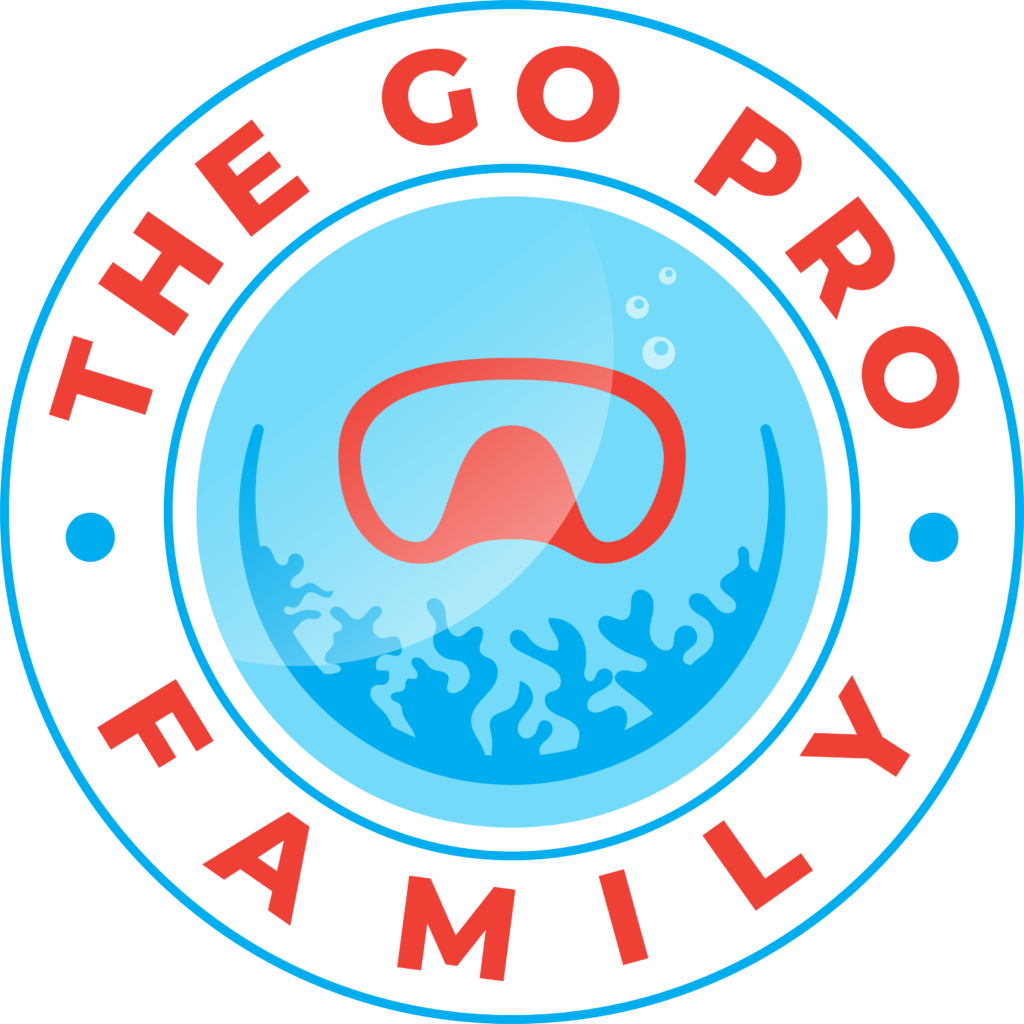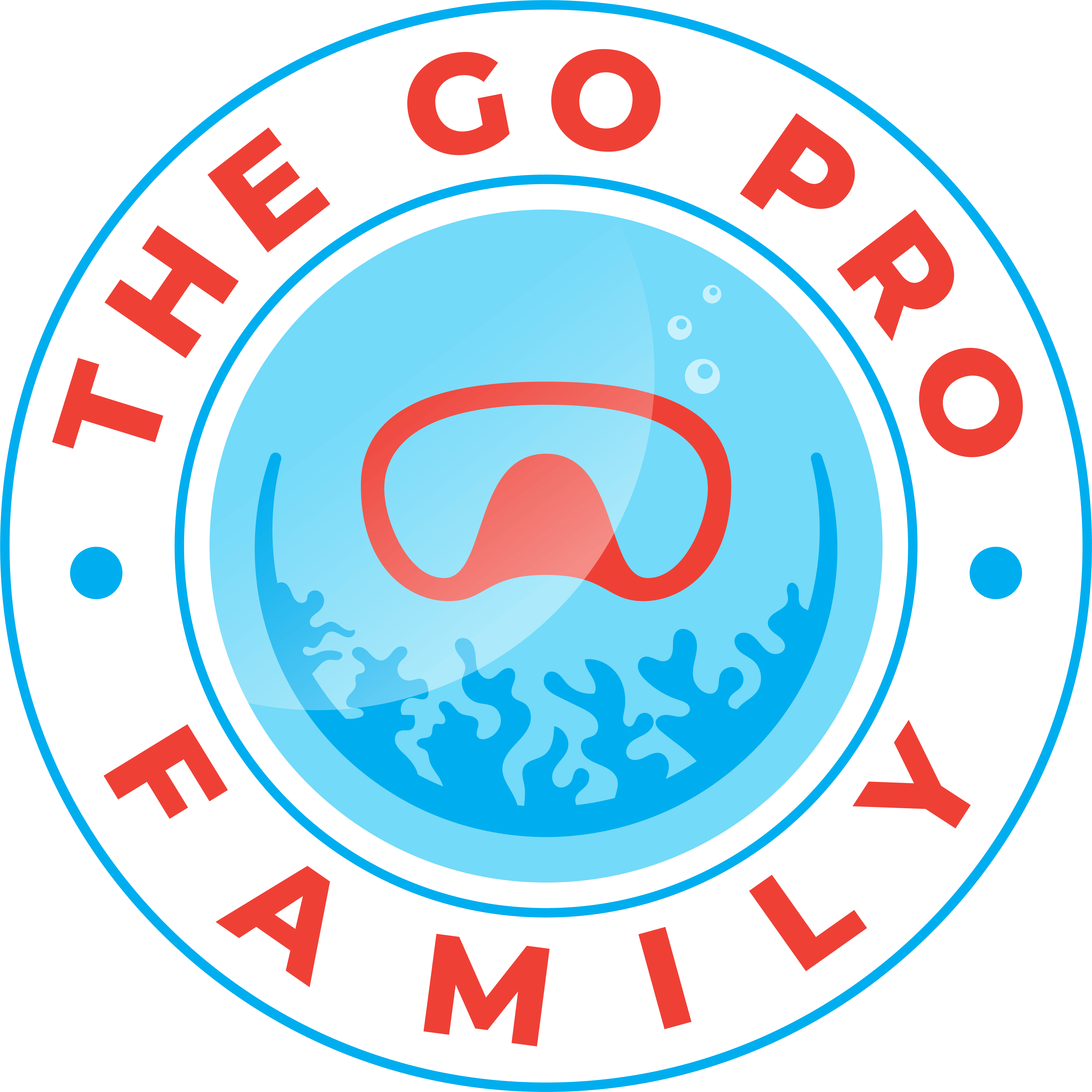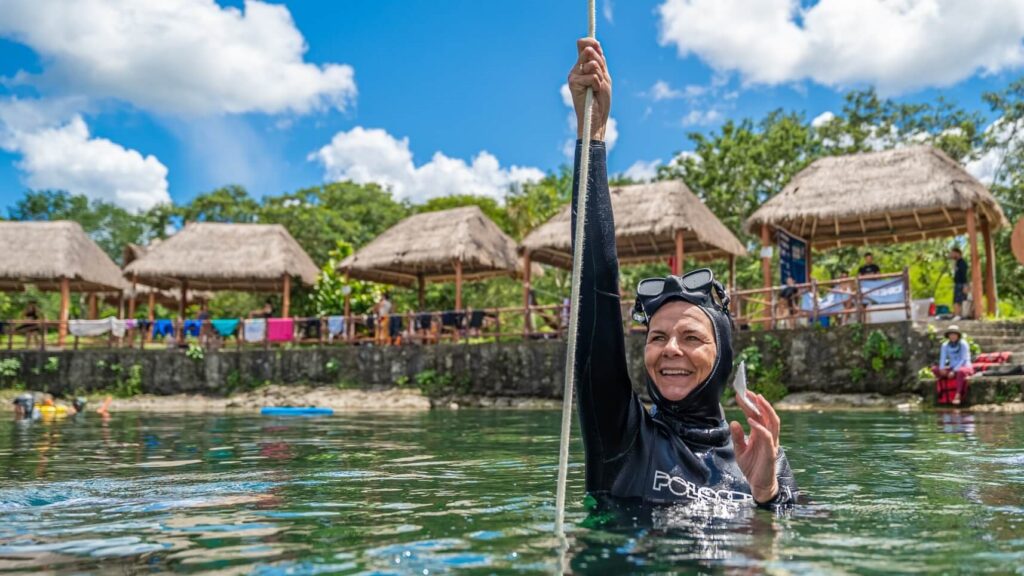Last month I competed in my first ever freediving competition. I never envisaged taking part in a competition when I started freediving but I decided to give it a try for the experience. The Azul Freediving Challenge is a 3-day competition held twice a year at a cenote northwest of Playa del Carmen. You can choose from any of the following freediving disciplines on any day – Free Immersion (FIM), Constant Weight Bi-fin (CWTB), and Constant Weight No Fins (CNF). (you can read more about the different freediving disciplines here). I decided to compete in all three.
Here are ten things I learned from participating in my first freediving competition. You might find some of these helpful if you are considering competing yourself.
1. Train in the competition environment before the event
I would highly recommend doing some dives in the same location before the competition starts, as water conditions can vary a lot. Even in the cenotes of the Riviera Maya there are variations such as water temperature, visibility and haloclines that will affect your dives. It’s also a good opportunity to get familiar with the facilities, travel time etc that will help make the actual competition as stress-free as possible. You will probably be used to diving on a buoy whereas diving from a competition platform has its own differences which you should experience before the event. The more you practice things like the surface protocol after your dive, the more routine it becomes and the less you have to think about it. That will lead to less mistakes and less stress in the competition.
2. Know the rules
The organizers of the Azul Freediving Challenge also ran a competition workshop for first-timers which was an excellent way to understand the competition rules and gain helpful tips. In my pre-competition training I made all the usual mistakes. For example I didn’t allow myself enough time for my warm up dives leading to stress and an early turn. On another I completely forgot to grab the tag at the bottom plate. But all this was a great learning experience for me and meant that I earned white cards on all my competition dives.
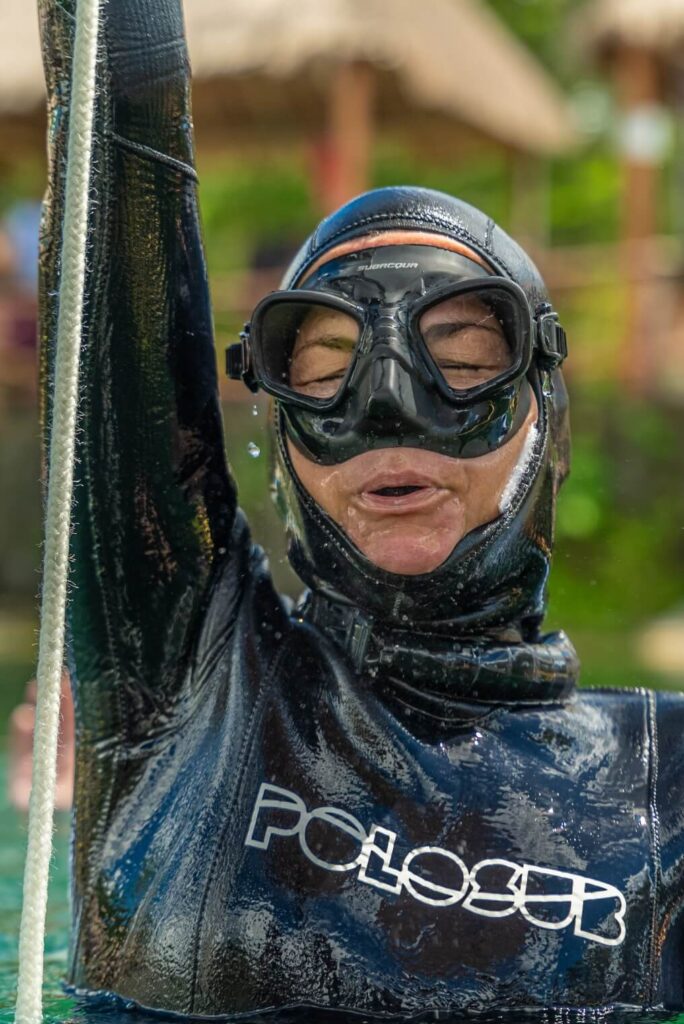
3. Check your nationality’s records
OK, if you are Italian, Russian or Mexican (or British like me), I don’t think the national record holders need to worry about you if you are a first-timer. 😉 However in my first competition there were national records set for Costa Rica, Trinidad & Tobago, Peru and Guatemala – all with depths that were within the reach of first timers. Being your country’s deepest freediver would be an awesome achievement and it is well worth checking out the rankings for your country.
4. Relax!
Ah yes, “just relax”. It is so important in freediving to have a relaxed mind and body, but that’s easier said than done when you are competing for the first time! On my first day of the competition my Official Top time (the time of my dive) was 3.50pm – almost the last dive of the day. This meant I had many hours at home to get super nervous before travelling to the cenote. My stomach was doing somersaults with a mixture of excitement and fear of messing up my dive and making a fool of myself. That same day our IDC candidates were starting their PADI Instructor Exams at 3.00pm, so I fully sympathized with them having to wait so long to get started. However once I got into the water and started my warm up dives, I was able to relax more and tried to think of the dive as though it was just another training dive. Having a routine at the dive site certainly helped with that.
5. Don’t underestimate the benefit of consecutive depth training
Being an instructor (scuba and freediver) living in Playa del Carmen means that in theory I have access to these beautiful cenotes every day. In practice however my work and daily life means that it is difficult for me to dedicate the necessary time to train. One of my incentives to sign up to this competition was to have a reason to get in the water and dive on consecutive days. I would have liked to have trained a bit more before the event but I was busy teaching our Instructor Development Course so it was not possible. Despite this, I had 7 diving days (just for me, not teaching) out of 9 days – I don’t think that’s happened to me ever before!
By the end of the competition my dives definitely felt easier. I think that was partly due to feeling more relaxed about the whole event, but also my body had become adapted to the physiological changes at depth. I knew that I was capable of diving a few meters deeper in each of the three disciplines I tried.
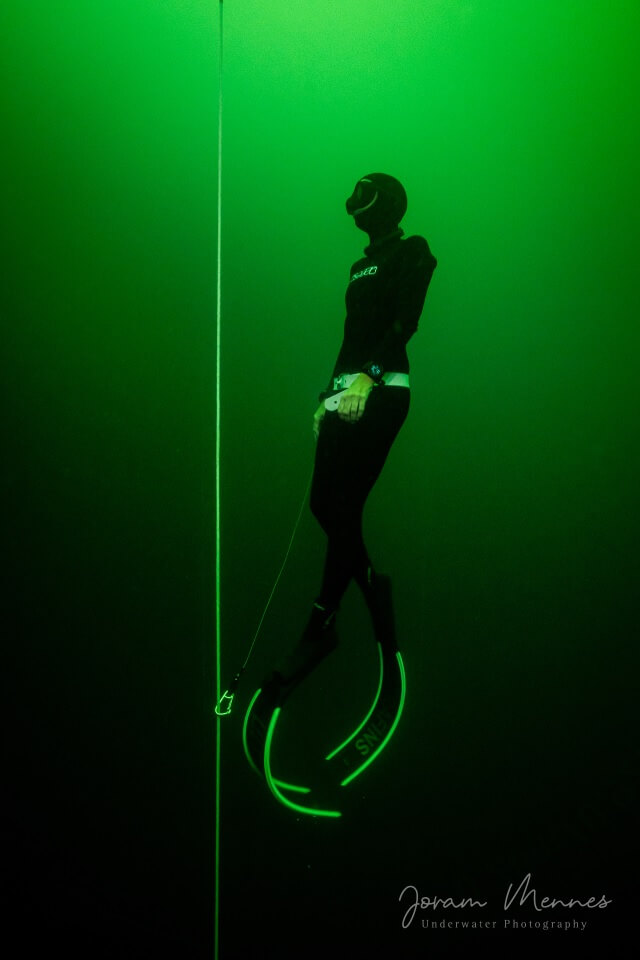
6. Push yourself – but not too much!
Before this competition I was firmly of the opinion that you should not try for a PB (personal-best) dive in a competition. My rationale being that the competition nerves would be detrimental to the intense relaxation needed to attempt a dive deeper than you have attempted before. But that was before I had considered the benefits of my pre-competition training as explained above.
Now, I would say it depends on the individual and how they feel in their preceding dives. For example, I would describe myself as a pretty conservative freediver. The dives I announced in the competition were dives that I felt confident I could achieve. With hindsight I could have pushed myself a bit further, but that’s all part of the learning experience. Other divers may have a less cautious attitude and might suffer from overconfidence when announcing their dives.
For me, the goals for my first competition were primarily to enjoy and have good feelings on my dives, and secondly to get white cards. I’m very happy that I succeeded in both of these goals. I know that if I had pushed too hard and not enjoyed my dives (or worse had a hypoxic event) it would have set me back mentally for my future dives.
If I could change anything, it would be to have had more training dives in the month prior to the competition hopefully allowing me to achieve some PBs in training. Then I could have had the confidence to try those dives again during competition.
7. A competition is not the right time to try new things
A few days before the competition I decided to train with a nose clip and no mask, having only made a handful of dives like this before. I naively thought that after a couple of dives I would reap the benefits of not having to pinch my nose or equalize my mask, and would make my CNF competition dive like this. In fact, I had a horrible time of it and didn’t realize that the change in facial equipment would have such a drastic effect on my dives.
Frustrated that I had “wasted” a valuable day’s training, I decided to switch back to what I was used to and use my mask in the competition.
Do what you normally do. This lesson applies to pretty much all parts of your dives in competition. Pre-dive habits, warm-up dives, dive equipment, computer alarms, and so on. If we have a routine to follow, our mind knows what to expect. When our mind knows what to expect, it’s easier to relax and feel safe and secure. This is also why visualizing your dive works so well.
Anything new or different that we decide to try on a dive means that our mind doesn’t know what to expect and so we cannot truly relax and feel safe. If you are planning to change anything about your dives you will need time and patience, neither of which mix well with a competition.
8. Learn from other competitors
One of the great things about my first freediving competition was getting to know so many other freedivers from around the world and sharing tips and advice. It was nice to have so many other first-timers to collectively lessen the nerves, and all the other competitors I met were supportive and helpful. For instance, I now know that I am not the only person to struggle so much with the nose-clip, and that it will get better with time.
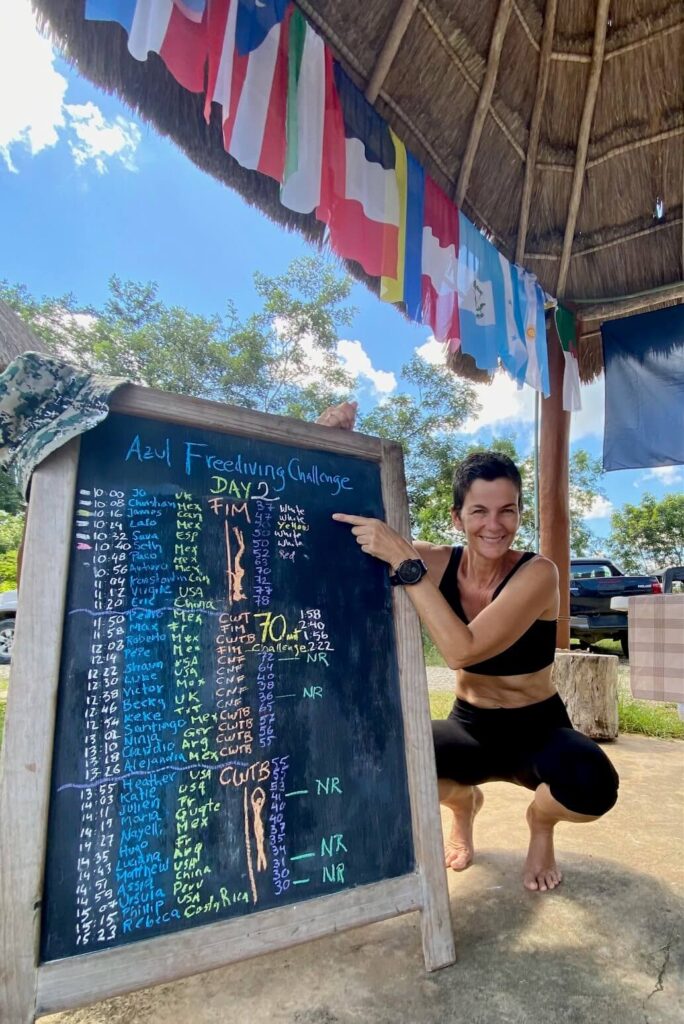
9. Rest and hydrate
I have lived in Playa del Carmen for over 10 years and would say that I am used to the tropical heat here. But I really struggled to stay hydrated during the competition. As well as it being hot and humid out of the water, the surface water temperature was 30°C and my wetsuit was better suited to the cooler cenotes. That combined with the fact that diuresis is a side effect of activating the mammalian diving response meant that I had to drink insane amounts of water and electrolyte drinks to replace lost fluid and minerals.
Rest is also important. It’s strange to think that freediving is so fixated on the topic of relaxation yet it also seems to be so exhausting! Freediving is quite stressing to the body due to the physiological changes that occur during the dive and the physical exertion. Dehydration also causes fatigue, and I’m not as young as I used to be, so I got plenty of early nights.
10. Have fun, and get ready for the next competition!
I wanted to compete in this freediving competition just for the practice and learning experience, and wasn’t sure if it would also be my last. Overall it has been a very positive and enjoyable time for me. By the last day I had almost forgotten about my terrible first day nerves and was mentally planning my dives for the next competition! I can understand how some divers get quite addicted to competing.
I would like to thank everyone at Azul Freediving Challenge for organizing such a great event, also thanks to the friendly judges and of course the amazing safety divers for looking after everyone!
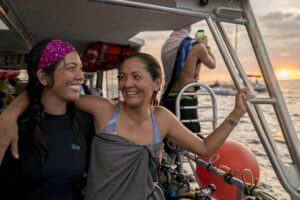
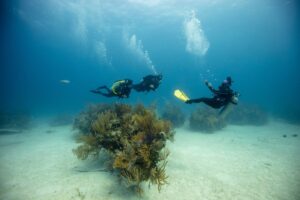
3 Reasons to Love Being a PADI Instructor (and how to rekindle lost love)
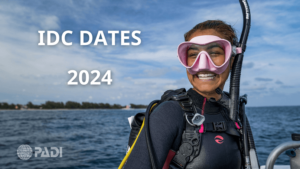
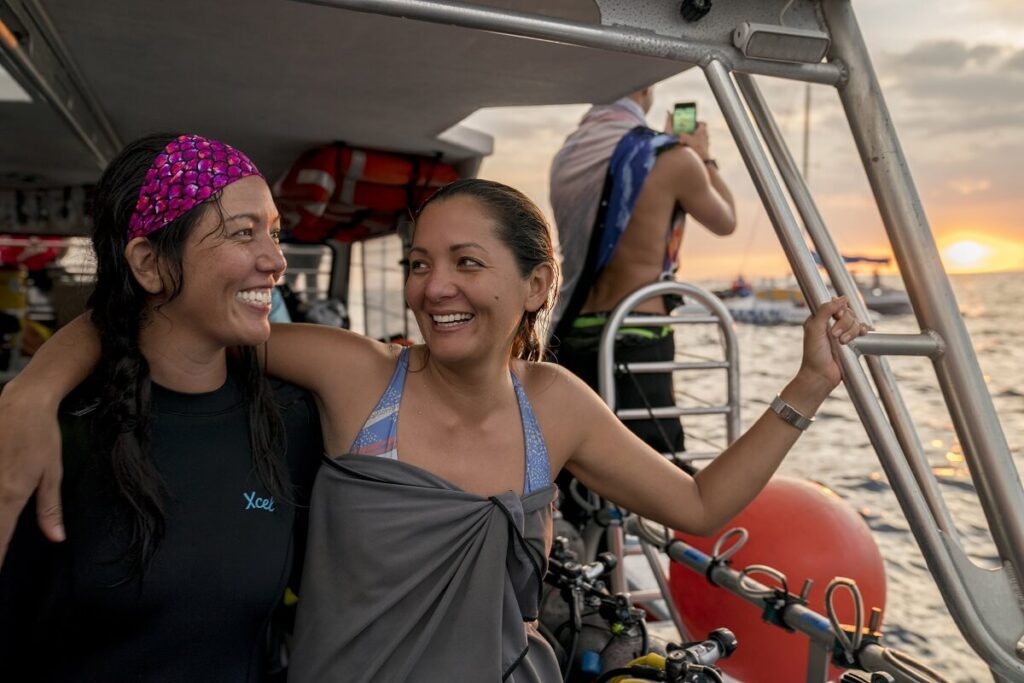

The Go Pro Family is PADI Platinum Course Directors Angel Navarro (from Spain) and Jo Armitage (from the UK), and their team of pros. Together, they have personally trained over 900 PADI Instructors, and have issued over 4000 professional-level certifications. Based in Playa del Carmen, Mexico, The Go Pro Family offers professional-level scuba training as well as technical, cave diving and freediving.
